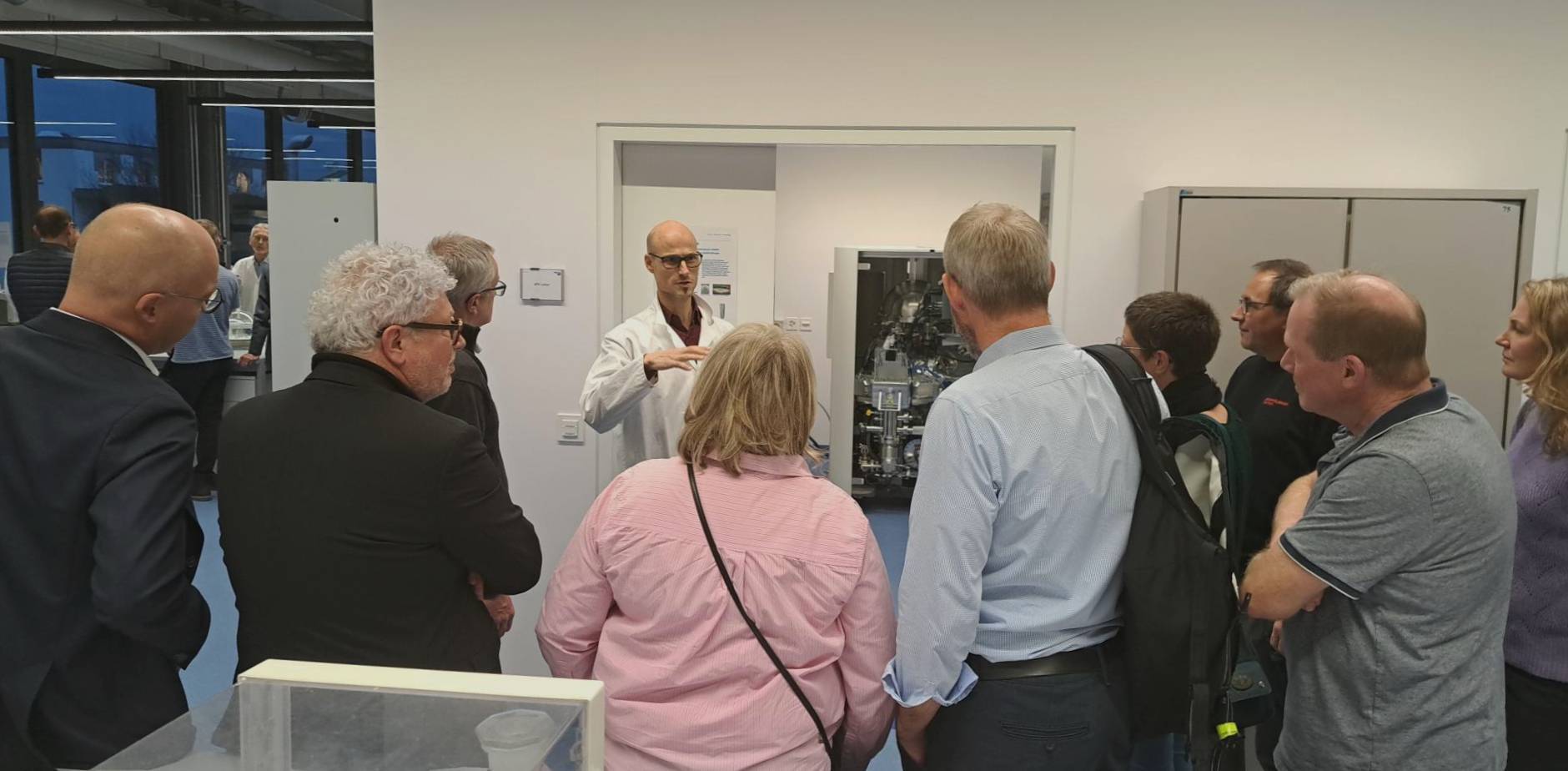RMS Foundation
Robert Mathys-Strasse 1
2544 Bettlach
Switzerland
Phone +41 32 644 2000
The tribological behavior of two gliding partners is investigated by pressing a pin against a disc and simultaneously moving it horizontally. Both sliding partners are usually in liquid, which is held back by a Plexiglas cylinder and whose temperature is regulated by a thermostat. The load and movement patterns are programmable in order to simulate the wear of surfaces under controlled conditions. The abrasion is determined gravimetrically and/or optically by means of profilometry.
Whenever possible, we carry out our testing services in accordance with or based on these international standards:
We use pin-on-disc wear tests for the following material tests, among others:
Suitable specimens: Hard gliding partner (metal or ceramic disc), soft gliding partner (polymer or cartilage pin)
Specimen specifications: Disc diameter up to 43 mm (plane-parallel), pin diameter up to 9.5 mm (15‑20 mm long)
Measuring range/options: Vertical force up to 400 N, speed up to 160 mm/s. Fluid temperature up to 50 °C.We test all possible material pairings in different liquids. Contact us and we will discuss your individual problem.
This wear test is carried out by RMS and can be supplemented with other RMS analysis techniques (e.g. determination of friction coefficients with the rotation tribometer or surface topography).
RMS is an ISO/IEC 17025 accredited analytical laboratory (accreditation type C). The wear test according to ASTM F732 is validated and accredited.
Thomas Imwinkelried
Dr. sc. EPFL, Certified Materials Engineer EPFL
Senior Scientist
+41 32 644 2018
Since 1995, the services of our materials testing laboratory have been accredited according to ISO/IEC 17025. Our QM system is ISO 9001 certified.
Here you will find our latest blog posts.

RMS Foundation
Robert Mathys-Strasse 1
2544 Bettlach
Switzerland
Phone +41 32 644 2000
E-Mail
Subscribe to our Info-letter, and we will inform you about 10 times a year about current developments in the fields of material testing, research, and knowledge transfer.